LAS professors bring honor and recognition to the college.
Have an honor you'd like to share with the Office of the Dean? Email us.
August 2010
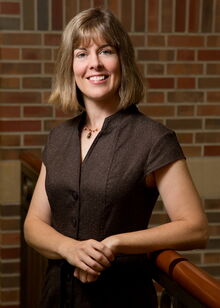
Kara Federmeier, professor of psychology, received a James S. McDonnell Foundation Scholar Award in the Understanding Human Cognition program. The awards support research on the relationship between neural systems, cognition, and behavior. Federmeier will research cognitive and neural mechanisms of meaning comprehension.
Dan Newman, professor of psychology, received the 2010 Early Career Achievement Award from the Research Methods Division of the Academy of Management. The award recognizes distinguished contributions to research, practice, and/or education in research methods in one’s early career (defined as within seven years of receiving a PhD). Newman also won the 2010 Robert McDonald Advancement of Organizational Research Methodology Award for an article on organizational research methods.
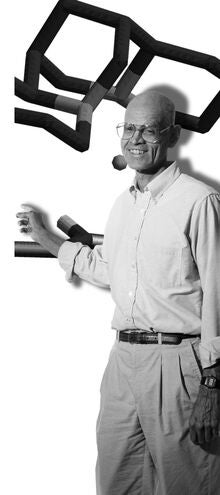
Peter Beak, the James R. Eiszner Endowed Emeritus Chair in Chemistry, was elected a 2010 fellow of the American Chemical Society (ACS) for his contributions to chemistry and to ACS. Working at the forefront of physical organic chemistry, Beak has advanced the characterization and understanding of organic reactions and has made significant contributions to stereochemistry through his study of reaction geometry at nonstereogenic atoms.
Theodore Brown, professor emeritus of chemistry, was elected a 2010 fellow of the American Chemical Society (ACS) for his contributions to chemistry and to ACS. He was the founding director of the Beckman Institute for Advanced Science and Technology and has been an active leader and advisor within the scientific community. His research group broke ground in several research areas in organometallic chemistry. He also co-authored a best-selling general chemistry text.
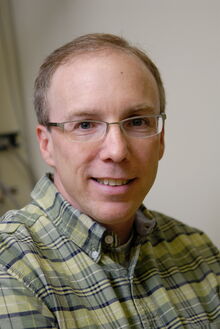
Jeffrey Moore, the Murchison-Mallory Professor of Chemistry, was elected a 2010 fellow of the American Chemical Society (ACS) for his contributions to chemistry and to ACS. An alumnus of Illinois, Moore returned to the University to research large organic molecules and polymers in three main areas: macro-molecule construction, self-healing polymers, and materials for energy storage.
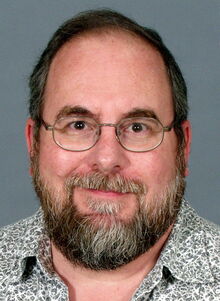
Kenneth Suslick, the Marvin T. Schmidt Professor of Chemistry, was elected a 2010 fellow of the American Chemical Society for his contributions to chemistry and to ACS. Suslick has made advances in the study of the chemical effects of ultrasound waves. He and his team are leaders in chemical sensing and developed an artificial nose capable of molecular recognition.
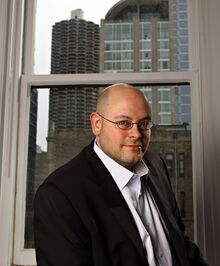
Matti Bunzl, professor of anthropology, gender and women’s studies, Germanic languages and literatures, history, Jewish culture and society, and Russian, East European, and Eurasian studies, has been appointed artistic director of the Chicago Humanities Festival, effective after this fall’s festival for which he is associate artistic director.
July 2010
Allan Borst, a lecturer in the Department of English, was named a New Faculty Fellow by the American Council of Learned Societies. He was awarded a two-year position at the University of California at Los Angeles. The council, a private nonprofit federation of 70 national scholarly organizations, is the preeminent representative of American scholarship in the humanities and related social sciences.
June 2010
Louise Fitzgerald, professor emeritus of psychology, has been named the 2010 recipient of the Heritage Award from Division 35 (Psychology of Women) of the American Psychological Association. She is being recognized for distinguished lifetime research contributions to the psychology of women.
Ronald Toby, professor of history and East Asian languages and cultures, and Akira Iriye, recently a visiting professor of history at Illinois following his retirement from Harvard, presented lectures at a recent Library of Congress event marking the 150th anniversary of the “Samurai Mission,” the 1860 Japanese diplomatic mission to the U.S., which was the first official delegation from Japan to any Western government. The Illinois representation in the program was appropriate, according to Toby, because of a long history of U of I links to Japan. Illinois “was among the very first U.S. universities to graduate a student from Japan, in 1873,” he says.
May 2010

Bruce Fouke, associate professor of geology, microbiology, and the Institute for Genomic Biology, received the 2010 Broadrick-Allen Award. The award is given annually to “a CHP faculty member who makes an extraordinary contribution to the well-being of Chancellor’s Scholars and the development and energy of the Campus Honors Program.”
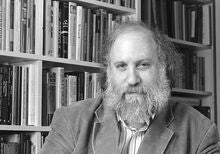
Cary Nelson, professor of English and Jewish culture and society and Jubilee Professor of Liberal Arts and Sciences, was re-elected president of the American Association of University Professors (AAUP) for a third two-year term. He has served on the AAUP’s National Council for 10 years, six as second vice president and the last four as president. The AAUP is an educational organization that promotes academic freedom by supporting tenure, academic due process, shared governance, and standards of quality in universities throughout the United States.
John Gerlt, professor of biochemistry, and his team of researchers received a five-year, $33.9 million grant from the National Institutes of General Medical Sciences (NIGMS) to study the functions of unknown enzymes discovered in genome-sequencing projects. The Enzyme Function Initiative (or “glue grant,” because it brings together multidisciplinary groups of investigators) provides resources to tackle the “complex problems that are of central importance to biomedical science but are beyond the means of any one research group,” according to the NIGMS.
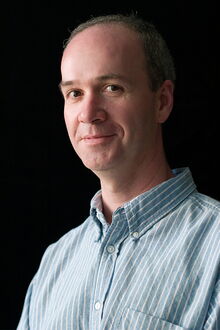
William Metcalf, professor of microbiology and the Institute for Genomic Biology, has been elected as a fellow of the American Academy of Microbiology. Fellows of the Academy are “elected annually through a highly selective, peer-review process, based on their records of scientific achievement and original contributions that have advanced microbiology.”
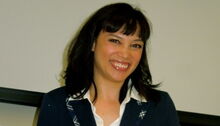
Lisa Cacho, assistant professor of Asian American studies, English, and Latina/Latino studies, received the 2010 Outstanding Asian American Faculty/Staff Award. This award is given in recognition of “years of commitment to the Asian American campus community in providing mentoring, advising, programming, counseling, teaching, and research opportunities that develop students’ self-awareness and promote understanding of Asian American issues.” Cacho was presented with the award at the annual Asian American Leadership Awards ceremony on May 3.
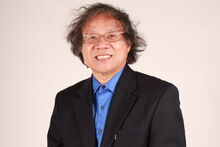
Hua-Hua Chang, professor of psychology, educational psychology, and statistics, was elected as a fellow of the American Educational Research Association (AERA). Fellows are elected in recognition of “exceptional scientific or scholarly contributions to education research or significant contributions to the field through the development of research opportunities and settings.” Chang was inducted at AERA’s annual meeting in Denver, Colo., on May 1.
April 2010
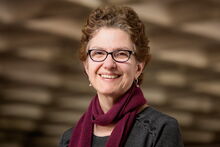
Antoinette Burton, professor and head of history and Bastian professor of Global and Transitional Studies, has won a 2010 Guggenheim Foundation Fellowship. She was awarded the fellowship to work on her book entitled Empire from Below: Resistance in the British Empire from the Opium Wars to Mau Mau. Guggenheim fellowships are awarded “on the basis of achievement and exceptional promise.”
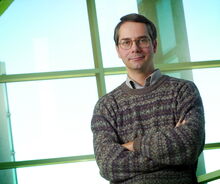
Martin Gruebele, James R. Eiszner Endowed Chair in Chemistry and professor of physics, has been named a 2010 Fellow of the American Academy of Arts and Sciences. The academy was founded in 1780 and honors outstanding leadership and scholarship; past members include Albert Einstein, Ralph Waldo Emerson, and many others. Gruebele has distinguished himself in chemical and biological physics with laser manipulation techniques and computational modeling.
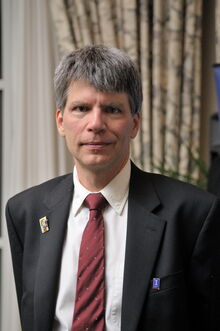
Richard Powers, Swanlund Chair and Center for Advanced Study Professor of English and member of the Beckman Institute Cognitive Neuroscience Group, has been elected to the American Academy of Arts and Letters. The Academy is an honor society of 250 architects, composers, artists, and writers who are elected for life; past members include Sinclair Lewis, Carl Sandburg, and Edith Wharton. The honor of election is considered “the highest formal recognition of artistic merit in the United States.”
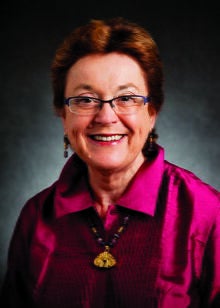
Elizabeth Lowe, director of the Center for Translation Studies, will be honored at the Brazilian Academy of Letters for her work on translating Brazilian literature and will give a presentation on her translation of Euclides da Cunha’s Os Sertões at the Academy in Rio de Janeiro on August 12, 2010.
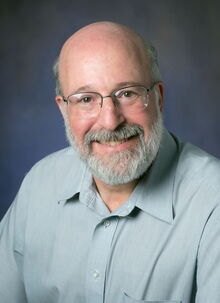
Stephen Marshak, professor of geology and director of the School of Earth, Society, and Environment, won the 2009 Chicago Book Clinic Book & Media Show in the category of school publishing for his book Essentials of Geology, 3rd edition. His book also won second place at the 2009 New York Book Show in the category of college book. This new textbook dominates the field for introductory geology texts and has changed the way geology is taught to undergraduates.
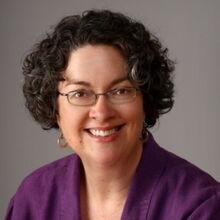
Cynthia Fisher, professor of psychology, has been elected as a fellow in the Association for Psychological Science (APS). Fellow status is awarded to APS members who have “made sustained outstanding contributions to the science of psychology in the areas of research, teaching, and/or application.”
Roger Koenker, William B. McKinley Professor of Economics and professor of statistics, is the winner of the 2010 Emanuel and Carol Parzen Prize for Statistical Innovation. The prize was awarded by the Department of Statistics at Texas A&M University for his “outstanding and influential research contributions in statistical science and economics; for pioneering and expositing quantile regression: theory, computation, real data applications; for global leadership as a mentor and research on diverse statistical methods: regularization, time series modeling, density estimation, and nonparametric inference.”
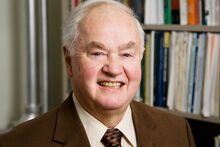
Walter McMahon, professor emeritus of economics, has received a 2009 American Publishers Award for Professional and Scholarly Excellence in the category of Education for his book Higher Learning, Greater Good: The Price and Social Benefits of Higher Education from the Professional Scholarly Publishing Division of the Association of American Publishers. The PROSE Awards annually recognize the best of professional and scholarly publishing and the commitment of publishers and authors to “pioneering works of research and for contributing to the conception, production, and design of landmark works in their fields.”
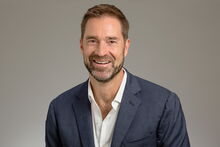
Brent Roberts, professor of psychology, has been awarded the American Psychological Foundation’s 2010 Theodore Millon Award in Personality Psychology for “outstanding mid-career advances in the science of personality psychology including the areas of personology, personality theory, personality disorders, and personality measurement.”
March 2010
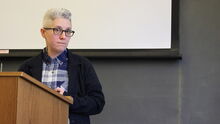
Jodi Byrd, assistant professor of American Indian studies and English, has taken office as president of the Association for the Study of American Indian Literature (ASAIL). ASAIL is the oldest and largest organization for scholars who focus on American Indian literature, and their quarterly journal is the only journal in the United States that focuses exclusively on American Indian literatures.
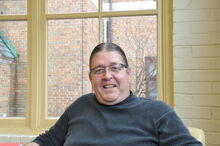
Robert Warrior, director and professor of American Indian studies and professor of English and history, has taken office as the founding president of the Native American and Indigenous Studies Association. The association hosts the largest scholarly meeting in the history of Native studies. The next annual conference will be May 20-22, 2010, at the University of Arizona, Tucson.
February 2010
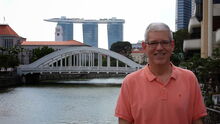
Daniel McMillen, professor of economics and the Institute of Government and Public Affairs, was elected as a fellow to the Weimer School of Advanced Studies in Real Estate and Land Economics. The Weimer School is “a unique and effective forum for fostering academic work that improves the quality of decision making in real estate and land economics.”
Milan K. Bagchi, professor of molecular and integrative physiology, has been recognized as a University Scholar; the program provides $10,000 to the scholar for each of three years to use to enhance his or her academic career. Bagchi’s work has made fundamental contributions to the understanding of steroid hormone action involved in the regulation of female reproductive tract function and fertility. He has played a leadership role in establishing a National Center for Research in Reproduction and Infertility at Illinois. His research goals are to elucidate the molecular pathways that are regulated by the steroid hormones estrogen and progesterone during development and differentiation of key hormone-responsive tissues, such as the female reproductive tract and the mammary gland.
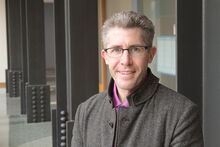
Neil L. Kelleher, professor of chemistry, has been recognized as a University Scholar; the program provides $10,000 to the scholar for each of three years to use to enhance his or her academic career. Kelleher leads an expansive group affecting three main scientific lines of research involving high resolution tandem mass spectrometry. He has established leading methods and software for identification and characterization of intact proteins—the so-called “Top Down” philosophy of protein analysis. He has devised leading new methods to dissect the bioassembly of peptide and polyketide secondary metabolites. A key part of his instructional contributions has been to expand the scope of the chemical sciences, in particular developing a highly fertile interface with molecular and cellular biology.
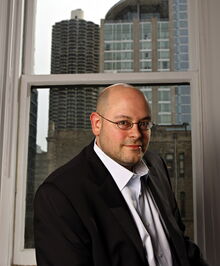
Matti Bunzl, professor of anthropology, gender and women’s studies, Germanic languages and literatures, history, Jewish culture and society, and Russian, East European, and Eurasian studies, has been appointed associate artistic director of the Chicago Humanities Festival (CHF). He will work closely with CHF programming and artistic staff to develop ideas and reach out to speakers and performers for the 21st annual festival.
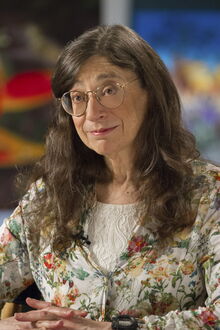
May Berenbaum, professor and head of entomology, is the 2009 recipient of the Public Understanding of Science and Technology Award from the American Association of the Advancement of Science. She was commended for her extensive service on the National Research Council (NRC). She is a national associate, an honor reserved for National Academy of Sciences members who make extraordinary contributions to the NRC.
January 2010
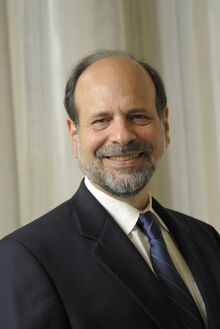
Brian H. Ross, professor of psychology and member of the Beckman Institute Cognitive Science group, was elected 2010 chair of the governing board of the Psychonomic Society, a 2,500-member organization for the promotion of research in psychology and allied sciences.
December 2009
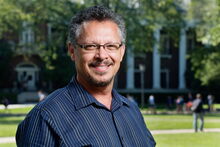
Alejandro Lugo, associate professor and associate department head of anthropology, won the 2009 Association of Latina and Latino Anthropologists Book Award, for his book Fragmented Lives, Assembled Parts: Culture, Capitalism, and Conquest at the U.S.-Mexico Border (University of Texas Press). Lugo’s book has also received a 2008 Southwest Book Award from the Border Regional Library Association.
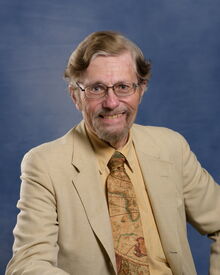
The Journal of Late Antiquity received an honorable mention for Best New Journal from the Council of Editors of Learned Journals (CELJ). The CELJ announced its annual winners at the Modern Language Association conference in Philadelphia. The journal is edited by Ralph Mathisen, professor of history, and published by the Johns Hopkins University Press. The journal was first published in 2008 and is the first international English-language journal dedicated to the study of Late Antiquity.
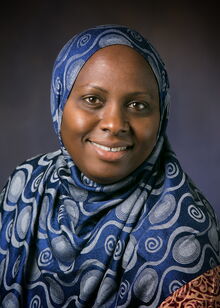
Maimouna Barro, associate director for the Center for African Studies, received recognition for her book, The Role of Literacy in Enhancing Women’s Agency and Well Being, which is the main feature in the latest Women and Gender in Global Perspectives Program newsletter. She also published an article in the Special Climate Issue of the United Nations Chronicle.
Paul Kenis, professor of chemical and biomolecular engineering, was recognized by the Separations Division of the American Institute of Chemical Engineers for his research focused on membrane protein crystallization on a chip. His research was recently was published in Crystal Growth & Design and published by Chemical & Engineering News.
November 2009
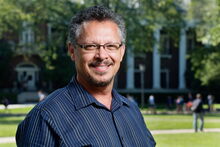
Alejandro Lugo, associate professor and associate department head of anthropology, received the Larine Y. Cowan “Make a Difference” award from the University’s Office of Equal Opportunity and Access. He was credited for “his advocacy to increase the number of underrepresented students at Illinois; his active participation in campus and community outreach for social justice; and to his efforts in addressing national issues about diversity.”
Richard Masel, professor of chemical and biomolecular engineering, has been awarded the Excellence in Process Development Research Award by the Process Development Division of the American Institute of Chemical Engineers. The award recognizes his work on formic acid fuel cells.
October 2009
Benita Katzenellenbogen, Swanlund Professor of Cell and Developmental Biology and Molecular and Integrative Physiology, has received the 2009 Susan G. Komen for the Cure Brinker Award for Scientific Distinction in basic science and clinical research for her work investigating breast cancer treatments. Katzenellenbogen will be one of three honorees to deliver a keynote lecture at the 32nd annual San Antonio Breast Cancer Symposium, a major international gathering of breast cancer researchers, clinicians, and patient advocacy organizations. She will also receive a cash award of $25,000.
September 2009
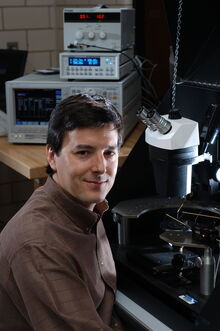
John Rogers, the Lee J. Flory-Founder Chair in Engineering Innovation, founding professor of materials science and engineering, and professor of chemistry, is a recipient of the MacArthur Foundation “Genius” Award. Rogers will receive $500,000 in "no strings attached" support over the next five years.
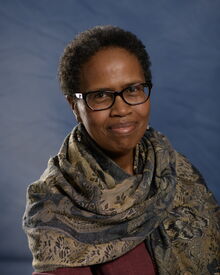
Janice Harrington, assistant professor of English, received the 2009 Rona Jaffe Foundation Writers’ Award. The award is given to women writers of exceptional talent who are in the early stages of their careers. The award brings with it a $25,000 prize, which Harrington will use to finish a collection of poems, Night Shift, based on her experience as a student working summers and weekends on the night shift as a nurse’s aide in a county nursing home. Her nominator says of her work, “Despite the difficulty of the lives she writes about, Harrington is a poet full of joy, delight, and faith in the world. This rather unfamiliar ‘upbeat’ message is masterfully integrated into the poems and only adds to their resonance and staying power.”
Gene E. Robinson, Swanlund Chair and professor of entomology, was elected as a 2009 Fellow to the Entomological Society of America (ESA). He was cited for his integrative research of social behavior, using the honeybee, and for pioneering the field of sociogenomics. The election as a Fellow acknowledges outstanding contributions in research, teaching, extension, or administration. The Fellows will be recognized at the 2009 ESA annual meeting in December. Additionally, Robinson received the National Institutes of Health Pioneer Award. Pioneer Awards are designed to support individual scientists of exceptional creativity who propose pioneering—and possibly transforming approaches—to major challenges in biomedical and behavioral research. He is using his Pioneer Award to understand in molecular terms how to transform the brain’s reward system from a selfish to an altruistic orientation. The goal is to achieve new insights into the flexibility of reward circuits that will fundamentally change our understanding of drug addiction and other diseases of the reward system.
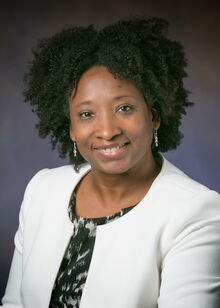
Carla D. Hunter, assistant professor of psychology, received the American Psychological Association’s 2009 Section on Ethnic and Racial Diversity Outstanding Contribution to Scholarship on Race and Ethnicity Award.
John A. Gerlt, Gutgsell chair and professor of biochemistry, chemistry and biophysics, and basic medical sciences, received the 2010 Arthur C. Cope Scholar Award from the American Chemical Society. The award recognizes and encourages excellence in organic chemistry. The award consists of a cash prize, a certificate, and a $40,000 unrestricted research grant to be assigned by the recipient to any university or nonprofit institution.
Maria Spies, assistant professor of biochemistry and biophysics, received the Margaret Oakley Dayhoff Award from the Biophysical Society. She was selected for "her exemplary research into the mechanisms of DNA repair and the cell cycle maintenance machinery." The award is given to a woman who holds very high promise or has achieved prominence while developing the early stages of a career in biophysical research. Achievement means that the candidate has already published substantial contributions to science; promise means that the candidate shows indications of leadership in ideas, organization, or other ways manifest for her colleagues within the scientific community. This award is presented each year at the annual meeting of the Biophysical Society, and consists of a monetary award.
August 2009
Ezekiel Kalipeni, professor of geography, will serve as a program officer for the Geography and Spatial Sciences Program at the National Science Foundation for two years, during which time he will retain his appointment in the Department of Geography. In his position, he will learn the inner-workings of proposal processing and the awarding of grants at the primary U.S. funding agency for scientific research.
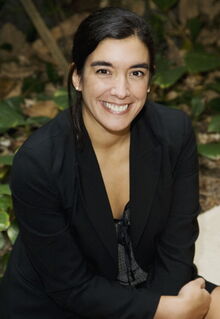
Dolores Albarracin, professor of psychology, was named a Fellow of the Association for Psychological Science. Fellow status is awarded to members who have made sustained outstanding contributions to the science of psychology in the areas of research, teaching, and/or application. She was also named a Fellow of the Society for Personality and Social Psychology.
Glenn I. Roisman, associate professor of psychology, received the Boyd R. McCandless Young Scientist Award from the American Psychology Association (APA). The Boyd McCandless Award recognizes a young scientist who has made a distinguished theoretical contribution to developmental psychology, has conducted programmatic research of distinction, or has made a distinguished contribution to the dissemination of developmental science. The award is presented by the membership of Division 7 of the APA, and the award winner will be invited to address the following year's meeting of the APA.
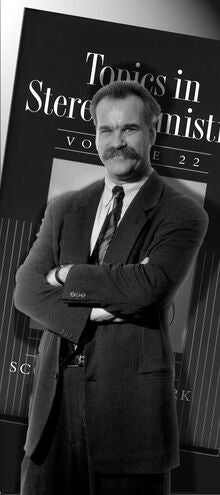
Scott E. Denmark, Reynold C. Fuson Professor of Chemistry, was elected as a Fellow to the American Chemical Society. The distinction of Fellow "recognize[s] members of the American Chemical Society for outstanding achievements in and contributions to Science, the Profession, and the Society." The distinguished honor of a Fellows designation will go to those who have distinguished themselves in multiple areas, including promoting the science, the profession, and service to the American Chemical Society.